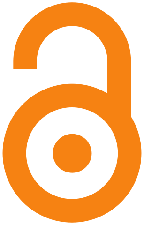At the end of April, the director of the National Institutes of Health announced that the implementation date for the 2024 Public Access Policy would be pushed up from the end of 2025 to July 1, 2025. The Policy amends a 2008 policy which allowed for a one year embargo before articles publicly funded with NIH grants had to be made fully open access. Effective July 1 of this year, no such embargoes will be allowed.

This is driven perhaps in part by a lack of faith in our scientific institutions, as NIH Director Jay Bhattacharya claims, this move could help strengthen trust in scientific research when many are unsure about the utility of scientists. While this is certainly a step toward transparency, many also wonder how feasible this will be on such relative short notice. With many researches and institutions already working hard to achieve full open accessibility by the original December 31 deadline, the new deadline may pose some difficult challenges.

Inside Higher Ed published an article discussing these changes and cites Matt Owens, who is the president of the Council of Government Relations, who worries that the new deadlines will impose extra burdens on grantees and their institutions. Owens also points out what he sees as a contradiction on the part of the NIH, as the organizations increases certification and financial reporting requirements while at the same time claiming to reduce regulation in the form of moving this deadline up. Owens has issued a statement urging the NIH to reconsider this policy change – while making clear that there is still genuine interest and effort going into meeting the NIH policy demands, particularly under the more realistic timeframe that was originally laid out.
It is difficult to predict exactly what the landscape will look like as we approach the new deadline – but either way, in the short term, universities with faculty or staff that receive NIH grants will have to put a great deal of effort into building open infrastructure that can comply with open access mandates.





